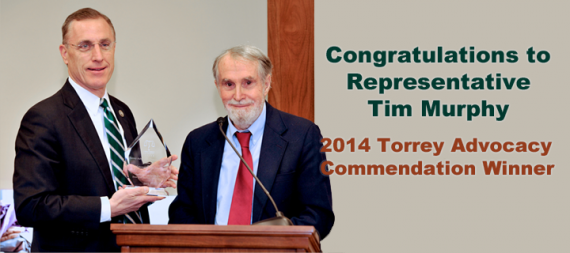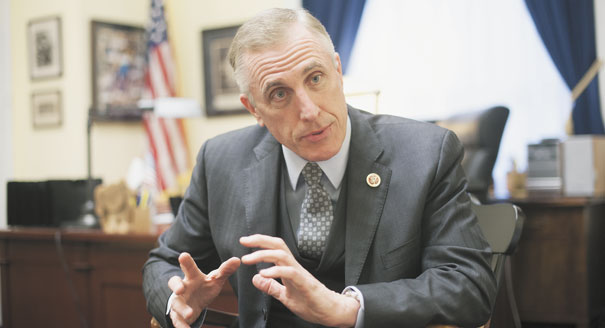
Photo is from Treatment Advocacy Center’s announcement of Rep. Tim Murphy’s award. Pictured with Dr. E. Fuller Torrey
(6-1-15) The question being asked on Capitol Hill is whether Rep. Tim Murphy (R-Pa.) will drop a requirement in his mental health legislation that would require states to begin using Assisted Outpatient Treatment as a condition of receiving federal mental health dollars. Under AOT, as it is known, states can require persons with a diagnosed mental illness to take anti-psychotic medication if that medication has proven to help him/her in the past and he/she has a documented history of violence or repeated hospitalizations.
It is a hot button issue for those who oppose forced treatment but is supported by many parents. It also is one of the main pillars in Murphy’s Helping Families in Mental Health Crisis Act, which had been steamrolling through the House during its last session until Democrats introduced a poison pill bill that kept Murphy’s bill stuck in a committee.
Murphy certainly gave no hints that he was willing to abandon AOT when he appeared May 20th at a Capitol Hill rally that was sponsored by the Treatment Advocacy Center and attended by more than a hundred family advocates.







